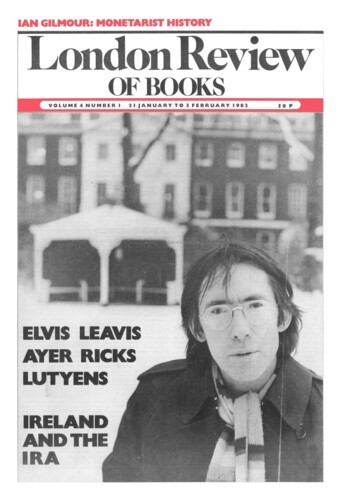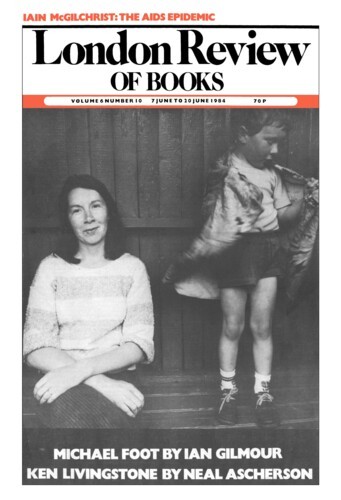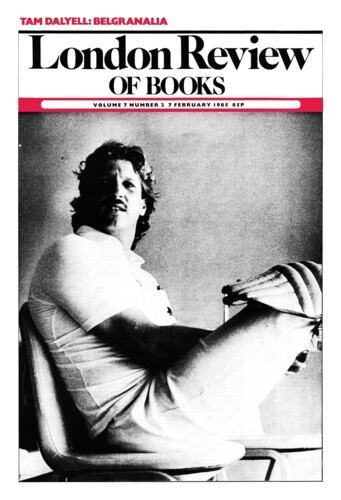Monetarism and History
Ian Gilmour, 21 January 1982
Soon after they have ensnared their young victims, the Moonies brainwash them, I am told, into hating their parents and families. Other Californian cults may do the same. The British Conservative Party is a long way from California, and it is still some way from being a cult: yet in recent years odd things have been happening to the Conservative Party. Conservatives have been asked to believe that virtually everything done by post-war Conservative governments was profoundly mistaken and a serious deviation from the path of true Conservatism.





